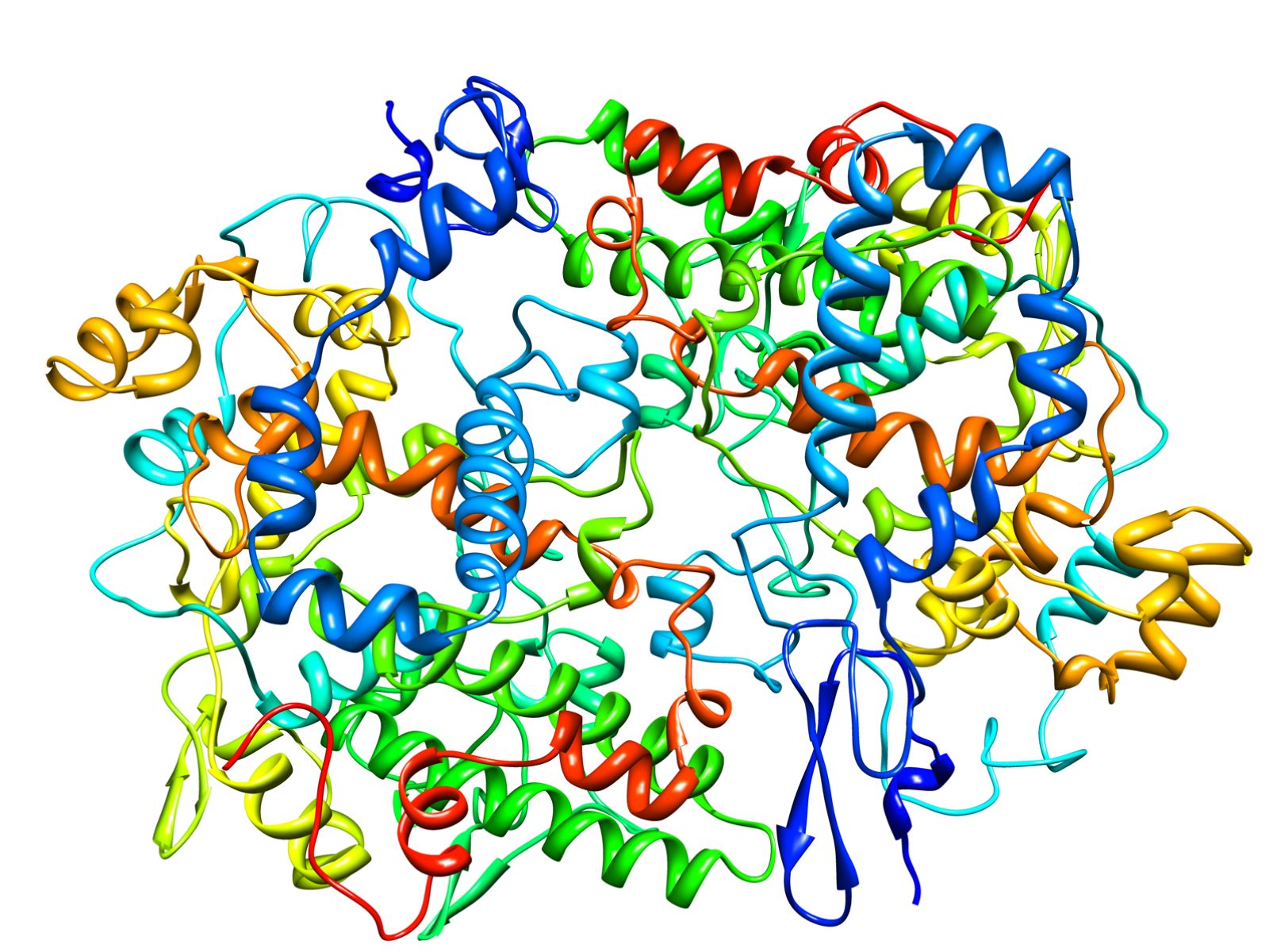
Cyclooxygenase (COX) is an enzyme that plays a crucial role in the body’s inflammatory response. But what exactly does it do? This enzyme helps convert arachidonic acid into prostaglandins, which are compounds involved in inflammation, pain, and fever. There are two main types: COX-1 and COX-2. COX-1 is usually active in maintaining normal cellular functions, while COX-2 is more involved in inflammatory responses. Understanding these enzymes is essential because many common medications, like aspirin and ibuprofen, work by inhibiting COX activity. This can help reduce pain and inflammation but may also lead to side effects. Want to learn more? Here are 50 fascinating facts about cyclooxygenase that will deepen your understanding of this vital enzyme.
Key Takeaways:
- Cyclooxygenase (COX) enzymes play a vital role in our bodies, regulating inflammation, pain, and blood clotting. Medications like aspirin and ibuprofen target these enzymes to reduce pain and swelling.
- COX inhibitors, found in medications and natural compounds, have diverse applications, from pain relief to potential treatments for cancer and autoimmune diseases. What we eat can also influence COX activity, impacting inflammation and pain levels.
What is Cyclooxygenase?
Cyclooxygenase (COX) is an enzyme that plays a crucial role in the body. It helps produce prostaglandins, which are compounds involved in inflammation and pain. Let's dive into some fascinating facts about this enzyme.
-
Cyclooxygenase exists in two main forms: COX-1 and COX-2. COX-1 is found in most tissues and helps maintain normal cellular functions. COX-2 is usually induced during inflammation.
-
COX-1 is often called the "housekeeping" enzyme. It regulates normal cellular processes like protecting the stomach lining and maintaining kidney function.
-
COX-2 is primarily involved in inflammation and pain. It gets activated in response to inflammatory stimuli, leading to the production of prostaglandins that cause pain and swelling.
-
Nonsteroidal anti-inflammatory drugs (NSAIDs) target COX enzymes. Medications like ibuprofen and aspirin inhibit COX activity, reducing inflammation and pain.
-
Aspirin irreversibly inhibits COX-1 and COX-2. This means it permanently deactivates the enzyme, which is why its effects last longer compared to other NSAIDs.
The Role of COX in the Body
Cyclooxygenase enzymes are vital for various physiological processes. They help regulate inflammation, pain, and even blood clotting.
-
Prostaglandins produced by COX enzymes have diverse roles. They can cause fever, pain, and inflammation but also protect the stomach lining and regulate blood flow.
-
COX-1 helps produce thromboxane, a compound that promotes blood clotting. This is why low-dose aspirin is often used to prevent heart attacks and strokes.
-
COX-2 is highly expressed in inflamed tissues. This makes it a target for anti-inflammatory drugs aimed at reducing pain and swelling.
-
Selective COX-2 inhibitors, like celecoxib, were developed to minimize gastrointestinal side effects. These drugs specifically target COX-2, sparing COX-1 and reducing the risk of stomach ulcers.
-
COX enzymes are involved in the production of prostacyclin, which inhibits blood clotting. This helps balance the effects of thromboxane, maintaining proper blood flow.
COX and Disease
Cyclooxygenase enzymes are linked to various diseases, making them important targets for medical research and treatment.
-
Chronic inflammation is associated with overactive COX-2. Conditions like arthritis and inflammatory bowel disease often involve elevated COX-2 levels.
-
COX-2 inhibitors have been studied for their potential in cancer treatment. Some cancers show increased COX-2 expression, and inhibiting this enzyme may slow tumor growth.
-
COX-1 deficiency can lead to gastrointestinal issues. Since COX-1 helps protect the stomach lining, its inhibition can cause ulcers and bleeding.
-
COX-2 is implicated in neurodegenerative diseases. Research suggests that COX-2 may play a role in conditions like Alzheimer's disease due to its involvement in inflammation.
-
COX enzymes are targets for treating cardiovascular diseases. Balancing the effects of thromboxane and prostacyclin is crucial for preventing heart attacks and strokes.
Interesting Facts about COX Inhibitors
Medications that inhibit COX enzymes have a wide range of applications, from pain relief to cancer prevention.
-
Aspirin is one of the oldest COX inhibitors. It has been used for over a century to treat pain, fever, and inflammation.
-
Ibuprofen is a non-selective COX inhibitor. It blocks both COX-1 and COX-2, making it effective for reducing pain and inflammation but also increasing the risk of stomach issues.
-
Celecoxib is a selective COX-2 inhibitor. It was developed to provide anti-inflammatory benefits while minimizing gastrointestinal side effects.
-
COX inhibitors are used in veterinary medicine. Animals also suffer from pain and inflammation, and COX inhibitors help manage these conditions in pets and livestock.
-
Some natural compounds act as COX inhibitors. For example, curcumin from turmeric and resveratrol from grapes have anti-inflammatory properties by inhibiting COX enzymes.
COX Enzymes in Research
Ongoing research continues to uncover new roles and applications for cyclooxygenase enzymes.
-
COX-3 is a variant of COX-1. It was discovered in the brain and may play a role in pain perception, although its exact function is still under investigation.
-
COX enzymes are studied in the context of aging. Inflammation is a key factor in aging, and COX inhibitors may help mitigate age-related diseases.
-
Genetic variations in COX enzymes can affect drug response. Some people may be more or less sensitive to NSAIDs due to differences in their COX genes.
-
COX-2 inhibitors are being explored for their potential in treating depression. Inflammation is linked to depression, and COX-2 inhibitors may offer new treatment options.
-
COX enzymes are involved in the body's response to infection. They help produce fever and other inflammatory responses that fight off pathogens.
Fun Facts about COX
Cyclooxygenase enzymes have some surprising and lesser-known aspects that make them even more intriguing.
-
COX enzymes are found in plants. They play a role in plant defense mechanisms, helping protect against pests and diseases.
-
The discovery of COX-2 led to a Nobel Prize. In 1982, John Vane received the Nobel Prize in Physiology or Medicine for his work on prostaglandins and COX enzymes.
-
COX inhibitors can affect mood. Some studies suggest that reducing inflammation with COX inhibitors may improve mood and reduce symptoms of depression.
-
COX enzymes are involved in childbirth. Prostaglandins produced by COX enzymes help induce labor by causing uterine contractions.
-
COX-2 expression increases with exercise. Physical activity can induce COX-2, which may contribute to muscle soreness and inflammation.
COX and Diet
What you eat can influence cyclooxygenase activity and, consequently, inflammation and pain levels.
-
Omega-3 fatty acids can inhibit COX enzymes. Found in fish oil, these fatty acids have anti-inflammatory properties by reducing COX activity.
-
Trans fats can increase COX-2 expression. These unhealthy fats, found in processed foods, can promote inflammation by upregulating COX-2.
-
Antioxidants in fruits and vegetables may reduce COX activity. Compounds like flavonoids and polyphenols have anti-inflammatory effects by inhibiting COX enzymes.
-
Spices like ginger and turmeric are natural COX inhibitors. These spices contain compounds that can reduce inflammation by blocking COX activity.
-
Alcohol can affect COX enzymes. Moderate alcohol consumption may have anti-inflammatory effects, but excessive drinking can increase COX-2 expression and inflammation.
COX in Everyday Life
Cyclooxygenase enzymes impact many aspects of daily life, from the foods we eat to the medications we take.
-
COX inhibitors are commonly used for headaches. Medications like ibuprofen and aspirin are go-to treatments for relieving headache pain.
-
Menstrual cramps are often treated with COX inhibitors. NSAIDs can reduce the production of prostaglandins that cause uterine contractions and pain.
-
COX enzymes play a role in allergies. Prostaglandins produced by COX enzymes can contribute to allergic reactions and symptoms like sneezing and itching.
-
COX inhibitors are used in sports medicine. Athletes often use NSAIDs to manage pain and inflammation from injuries and intense training.
-
COX enzymes are involved in the body's response to stress. Stress can increase COX-2 expression, leading to higher levels of inflammation and pain.
COX and the Future
Research on cyclooxygenase enzymes continues to evolve, promising new treatments and insights into various health conditions.
-
New COX inhibitors are being developed. Scientists are working on drugs that more selectively target COX enzymes to minimize side effects.
-
COX enzymes are being studied in relation to COVID-19. Inflammation plays a key role in severe COVID-19 cases, and COX inhibitors may help manage symptoms.
-
COX-2 inhibitors are being explored for their potential in treating chronic pain. These drugs may offer new options for managing conditions like fibromyalgia and neuropathy.
-
COX enzymes are involved in wound healing. Prostaglandins produced by COX enzymes help regulate the healing process and tissue repair.
-
COX inhibitors are being studied for their potential in treating autoimmune diseases. Conditions like lupus and rheumatoid arthritis involve chronic inflammation, and COX inhibitors may help manage these diseases.
Miscellaneous COX Facts
Here are some additional interesting tidbits about cyclooxygenase enzymes that didn't fit into the other categories.
-
COX enzymes are found in some bacteria. These bacteria use COX enzymes to produce prostaglandin-like compounds that help them survive in hostile environments.
-
COX inhibitors can affect sleep. Some studies suggest that reducing inflammation with COX inhibitors may improve sleep quality.
-
COX enzymes are involved in the body's response to cold. Prostaglandins produced by COX enzymes help regulate body temperature and blood flow in response to cold exposure.
-
COX inhibitors are used in dermatology. These drugs can help manage skin conditions like psoriasis and eczema by reducing inflammation.
-
COX enzymes are studied in relation to aging. Inflammation is a key factor in aging, and COX inhibitors may help mitigate age-related diseases.
Final Thoughts on Cyclooxygenase
Cyclooxygenase, often abbreviated as COX, plays a crucial role in the body’s inflammatory response. Understanding its function helps in grasping how pain relievers like ibuprofen and aspirin work. COX enzymes, specifically COX-1 and COX-2, are involved in producing prostaglandins, which are compounds that mediate inflammation and pain. While COX-1 maintains normal cellular functions, COX-2 is more active during inflammation.
Knowing these facts can aid in making informed decisions about medication use. For instance, selective COX-2 inhibitors can reduce inflammation without the stomach issues often caused by non-selective NSAIDs. However, they might carry cardiovascular risks.
In short, cyclooxygenase is a key player in both health and disease. By understanding its mechanisms, we can better manage pain and inflammation, improving overall well-being.
Frequently Asked Questions
Was this page helpful?
Our commitment to delivering trustworthy and engaging content is at the heart of what we do. Each fact on our site is contributed by real users like you, bringing a wealth of diverse insights and information. To ensure the highest standards of accuracy and reliability, our dedicated editors meticulously review each submission. This process guarantees that the facts we share are not only fascinating but also credible. Trust in our commitment to quality and authenticity as you explore and learn with us.


